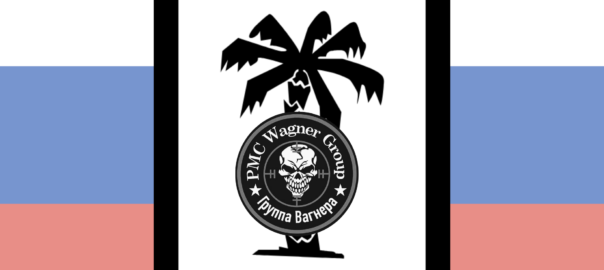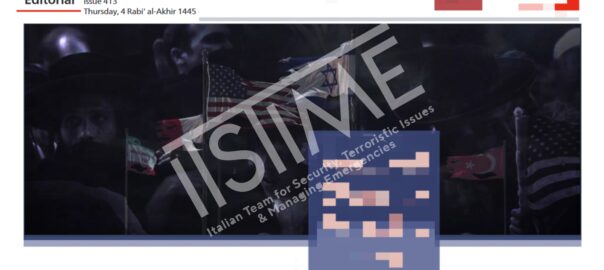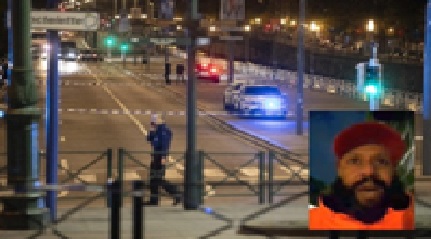In late December 2023, pro-AQ users shared two videos on various social platforms (X, Telegram, and RocketChat) that seemed to breathe new life into Inspire’s infamous magazine series.
Continue readingAll posts by Marco Lombardi
Caos Ecuador: dalle pandillas di strada al narco-terrorismo – by Giovanni Giacalone
Nella serata del 9 gennaio l’Ecuador è piombato nel caos con le pandillas (bande di strada) che hanno attaccato con una violenza inaudita obiettivi istituzionali e civili come stazioni di polizia, pattuglie, ospedali, università, emittenti televisive, distributori di benzina. Colpi di arma da fuoco sono stati sparati indiscriminatamente contro agenti e civili e numerose auto sono state date alle fiamme.
Continue readingReorganization through Confederation: how Putin is exploiting the PMC Wagner model – by G. Porrino, A. Bolpagni, F. Borgonovo
Despite the death of Yevgeny Prigozhin on 23 August, PMC Wagner continued to operate in the African and Middle Eastern theatre, except for the troops that were engaged in Ukraine and are now stationed in Belarus. In recent months, however, the Ministry of Defence has undertaken a plan to restructure the PMC Wagner network, preserving its tactical-operational assets and the benefits derived.
Continue readingWhitejihad Digital Ecosystem: the impact on Italian contest – by F. Borgonovo, S. R. Lucini & G. Porrino (It. & Eng. Version)
Italian Version: Il 5 dicembre 2023 due ventenni (22 e 20 anni) di origine pakistana sono stati arrestati a Brescia… (continua)
Continue readingThe spillover of Israel-Hamas conflict and radicalisation in Western societies – by Maria Chr. Alvanou
More than a decade ago the term “radicalisation” began to be a popular term amongst those dealing with the phenomena of extremism and terrorism in the West (and especially Europe).
Continue readingIslamic State Blitzkrieg Propaganda – by F. Borgonovo, G. Porrino & S.R. Lucini
The recent Hamas attack has brought the Israeli-Palestinian conflict back into the international spotlight, and this has awakened the communication of the main jihadist groups. With al-Qa’ida supporting Hamas and its actions, a statement on the attack by the Islamic State was expected. On 20th October, through the publication of the 413th issue of al-Naba, an official newspaper issued by the Central Media Office of the Islamic State, IS expressed its position.
Continue readingIl cambio di strategia di Hamas verso il jihad globale -by Giovanni Giacalone
L’eccidio di civili perpetrato da Hamas lo scorso 7 ottobre ha sconvolto l’opinione pubblica e la comunità internazionale, infiammando nuovamente l’eterna questione israelo-palestinese e riportando al centro dell’attenzione mediatica e politica il problema del terrorismo di matrice islamista, messo nel dimenticatoio dall’emergenza Covid e dalla guerra in Ucraina. In molti hanno commesso l’errore di credere che il problema del jihad globale fosse sparito dopo la disfatta territoriale dell’ISIS nel Siraq (che non implica però una sua sconfitta), ma la realtà è ben diversa.
Continue readingVerso lo Spazio – by Beatrice Cascone
Siamo consapevoli di quanto lo spazio incida sulla nostra vita quotidiana? Cosa succederebbe se non potessimo più utilizzare i servizi di navigazione come l’app mappe all’interno dei nostri telefoni?
Continue readingWar and peace in the global village. Second half – by Giacomo Buoncompagni*
Shortly after the clashes in Ukraine, the apparently silent Israeli-Palestinian conflict reignited, at least in the Western media. A few months later, more blood, death and hostages between polarised information and a desperate plea for peace. Diversity has historically been a potential source of friction and misunderstanding.
Continue readingNuovi attacchi estremisti in Europa e strumenti di valutazione della minaccia: una riflessione critica sui TRA-Is – by Barbara Lucini
L’attentato estremista di lunedì 16 Ottobre a Bruxelles che vede la morte di due turisti svedesi ha riacceso l’attenzione sulla questione sicurezza e rischi attentati in Europa.
Continue readingEffetto Hamas: l’attacco a Israele e la nuova utopia radicale – by Sara Brzuszkiewicz
Nuovi allarmi bomba nelle scuole francesi, a tre anni di distanza dalla decapitazione di Samuel Paty, il professore che il 16 ottobre 2020 venne ucciso da Abdoullakh Abouyezidovich Anzorov, diciottenne ceceno rifugiato in Francia, dopo una campagna online contro il docente, colpevole di aver mostrato alcune vignette di Charlie Hebdo ritraenti il profeta Muhammad.
Continue readingHamas come Isis – by Marco Lombardi
Un’intervista per il Messaggero.
Continue reading











